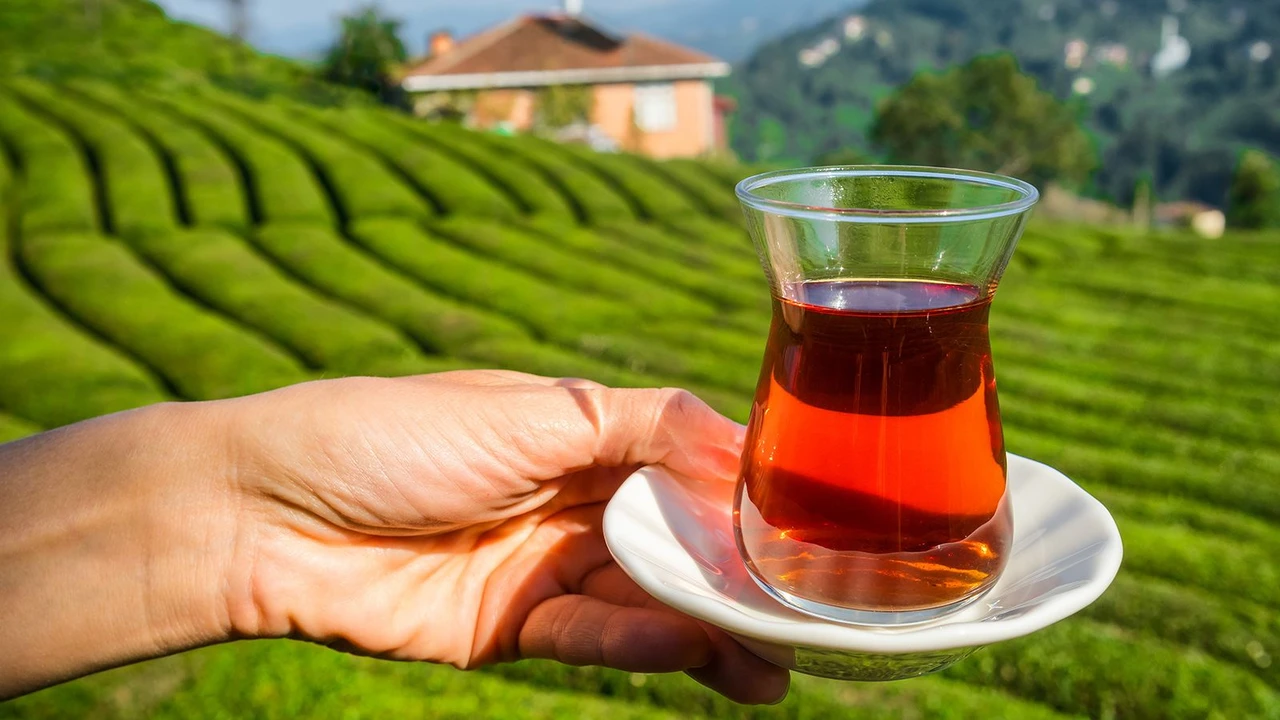Turkish tea enjoyed across globe, reaches 112 countries
 Turkish tea with a scenic view of the verdant tea plantations. (Photo by Mazur Travel via Adobe Stock)
Turkish tea with a scenic view of the verdant tea plantations. (Photo by Mazur Travel via Adobe Stock)
Türkiye, which boasts the only tea in the world that is harvested under snow, exported 2,898 tons of tea in the January-June period, generating $13,914,532 in revenue, according to data compiled by the Eastern Black Sea Exporters Association (DKIB).
Belgium, the United Kingdom and the United States emerged as the top three importers of Turkish tea. During the first six months of the year, Türkiye exported $5,246,512 worth of tea to Belgium, $1,878,642 to the United Kingdom, and $1,009,991 to the United States.
New Markets for Turkish Tea
Besides these leading markets, Turkish tea found new buyers in countries including the United Arab Emirates (Dubai), Mauritania, Tunisia, Egypt, South Sudan, Cuba, Burundi, the Central African Republic, Namibia, Sao Tome and Principe, Venezuela, Equatorial Guinea, Czech Republic, Burkina Faso, Djibouti, Cambodia and Slovenia during this period.
Rize leads in export contribution
Rize, accounting for 49% of Türkiye’s tea exports, played a crucial role. The city exported 1,870 tons of tea to 24 countries, earning $6,850,514. Belgium, the U.S., and the Turkish Republic of Northern Cyprus (TRNC) were the top importers from Rize, with exports valued at $5,169,765, $599,795, and $209,830, respectively.
This year, Rize also expanded its export markets to include France, Singapore, Qatar, China and Bahrain.
Increasing productivity, quality in tea gardens
DKIB Chairman Saffet Kalyoncu emphasized the ongoing upward trend in tea exports, expressing optimism about closing 2024 with increased export figures.
He highlighted the need for significant efforts to boost tea exports, focusing on enhancing productivity and quality in tea gardens to address the future risk of global warming.
Kalyoncu underscored the importance of innovative products tailored to the tastes and consumption habits of different countries, alongside a stronger emphasis on R&D and innovation.
He called for support for all small and medium-sized tea manufacturing firms to achieve these goals.
“We believe that improving productivity and quality in the gardens will significantly elevate our tea exports and strengthen our position in global markets,” Kalyoncu said.



